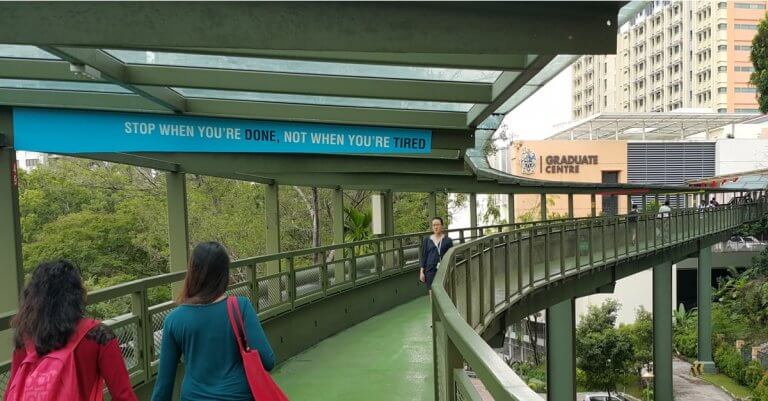
As the Immigration Department (ID) and Education Malaysia Global Services (EMGS) work together to encourage more international students to study in Malaysia, key figures in the Malaysian education world are concerned over the future of the country’s universities.
At a recent seminar at Sunway University, president director of PT People Power International Dr Suresh Marcandan and Sunway board member Tan Sri Professor Ghauth Jasmon explained that Malaysia’s universities are in danger of closure.
Despite Malaysian universities doing relatively poorly in the Times Higher Education World University Rankings 2018, international students are still studying there at increasing rates. As ID and EMGS aim to make it easier for foreign applicants to enter Malaysia, the country’s international student population is set to increase to 200,000 by 2020.
Foreign students in Malaysia expected to reach 200,000 by 2020, says minister ttps://goo.gl/gKE9Zm #HigherEd pic.twitter.com/L47MT7UVJM
— Study International (@Study_INTNL) March 13, 2018
But as the modern world develops, Malaysia is at risk of losing students to online courses and competitors. As online learning rises, more and more universities are offering online courses – and as Jasmon said at the event: why would a student choose to study at Sunway when they could study at Harvard online with the same ease?
So how can Malaysian universities ensure they remain relevant in the increasingly competitive modern higher education world?
New competition
Before long, Microsoft and Google will enter the higher education world. Already, Australian universities are partnering with tech giants. Marcandan anticipates soon there will be schools such as The Apple School of Communication cropping up and universities should be ready for the challenges this will create.
But in the meantime, should Malaysian universities wait like sitting ducks or should they be working toward welcoming the online future and competition?
Building a sustainable competitive advantage
“Why doesn’t [Malaysia] become an iconic brand?” Marcandan asked at the seminar. Through ‘nation branding’ countries can attract more international students to their shores and retain current students.
However, he acknowledged “branding is something you can fake through advertisement and marketing,” yet identity is something ingrained. Universities need to create an identity, something that showcases a country’s quality of life.
Malaysia needs to become an “attraction for talent” and the way to do so is to begin promoting itself as an exciting country in which to live, work and study.
Want to study in Malaysia? The visa application just got a whole lot easier (and faster!) https://t.co/XHXkWJHDdu pic.twitter.com/JNCmeNd0ky
— Study International (@Study_INTNL) March 9, 2018
Malaysia needs to advertise its educators, researchers, professionals, innovators, creators and more; the country must showcase itself to Asia and the wider world in order to retain talent and attract more students.
Malaysia’s problem, Marcandan claimed, is it isn’t famous in the same way Belgium is for chocolate or Japan is for cars, and that is why it currently loses so many students to countries such as Singapore. And, as online learning builds bridges across oceans for students to ‘study abroad’ without leaving home, the competition is growing.
Focus on learning not teaching
One of the biggest flaws in the system is that “the focus is on teaching not learning”, Marcandan explained.
The Teaching Excellence Framework (TEF) which runs in the United Kingdom is flawed in that the focus is solely on teaching and not learning. One country which is doing well at this is Australia, Marcandan told Study International.
In Australia, the feedback is a “360 degree evaluation”.
This more all-round focus includes methods such as “peer evaluation, which I don’t see happening here”, Marcandan said.
He explained much of this seems to be what is traditionally culturally acceptable, and allowing students to take on a teaching role seems to be much less prevalent in Asian countries.
“You need a balance of learning and teaching,” he told Study International.
To stay relevant in today’s context, an interdisciplinary focus on a range of subjects would be both more appealing and produce more successful graduates than one-subject courses. A “customized learning” approach where students can delve into a multitude of subjects which interest them could attract more talent to Malaysia’s shores.
"One important thing hasn’t changed: the value of a college education and its ability to transform students’ lives." https://t.co/X33z9H1Ii2
— L. Maren Wood, PhD (@drmarenw) March 15, 2018
“Liberal arts an education is for life”, Marcandan said, “and in life you should look at other things other than your own discipline.”
Learning literature, drama, philosophy, art, culture, history and creative writing along with life skills can be used to enhance the education system in Malaysia and indeed worldwide, Marcandan argued.
Free public education
Free public education could be the solution, Marcandan said – however, the road to getting there is long and tricky.
“Malaysia spends over 5 percent of gross domestic product (GDP) on education […] which is very high in this region,” Marcandan said, yet it is the fifth most expensive place to get a university education relative to its household income.
The problem, he explained, could be the optimization of resources. The money is being spent, the resources are there, but they are not being used to benefit the local and global economy.
#Malaysia’s #education system is still lagging on PISA rankings despite massive government spending. https://t.co/WtFNOKndWu pic.twitter.com/eV7o1kewId
— The Educator Asia (@TheEducatorAsia) March 8, 2018
“Malaysian universities need to make their presence felt to benefit the community,” and this extends to local students and those from further afield, Marcandan explained.
“Universities that survive 80 to 90 percent on student fees will not survive” at all in the future, Jasmon said.
No matter what Malaysian universities do now, the end of the “university system as we know it” is dawning, and it is not just Malaysia that needs to be prepared.
Liked this? Then you’ll love…
Despite rankings, foreign students make beeline for Malaysian unis







